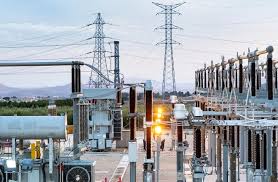Business
That Bilateral Air Services Agreement With Israel
In spite of the rising volume of trade between Nigeria and Israel and the large number of Nigerians performing the yearly Christian pilgrimage to Israel, there is no direct air link between the two countries.
As a result of this, “spiritual visits’ to the Holy Land and business trips have been tortuous and rigorous due to the absence of direct flights between Nigeria and Israel.
This is because anyone travelling to Israel from Nigeria has to make a compulsory stopover in countries like Turkey, France, Germany, Cyprus and Ethiopia before proceeding on the journey
Statistics from Israel’s Ministry of Tourism, however, indicate that Nigeria has the highest number of pilgrims coming to Israel after the U.S.
Observers, therefore, believe that the signing of Bilateral Air Services Agreement (BASA) with Israel in Jerusalem on October 28, 2013 would redress the trend.
The Acting Minister of Foreign Affairs, Prof. Viola Onwuliri, who signed the agreement on behalf of Nigeria, said that the agreement would deepen bilateral ties between the two countries and boost their economies.
“The agreement will augur well for movement of persons, pilgrims, businessmen, academics, the civil society and students. Many of our people also come here to benefit from the technology of Israel,’’ she said.
Onwuliri said that the agreement would also make a tremendous impact on trade and investment, agriculture, construction, tourism, security and capacity building.
Mr Zeev Elkin, who signed on behalf of the State of Israel, noted that the visit of President Goodluck Jonathan, who was in Israel when the agreement was signed, provided a great opportunity for the signing of the agreement.
The Minister of Aviation, Ms Stella Oduah, said that the BASA agreement would be exploited to enhance the performance of the aviation sector. She said that the aviation sector was already targeting the operation of daily flights to Israel.
On his part, Mr John Kennedy Okpara, the Executive Secretary, Nigerian Christian Pilgrims Commission, said that the agreement could reduce the number of hours which pilgrims spent on flights, as well as cut costs.
Mr Ike Willie-Nwobu, the Executive Director, Nigeria-Israel Chamber of Commerce (NICC), said that the BASA agreement with Israel would remove some barriers hindering trade between the two countries.
He stressed that Nigerian entrepreneurs had not been able to fully utilise the investment opportunities in Israel because of the rigours of travelling through connect flights.
“Anyone travelling to Israel from Nigeria has compulsory stopovers in countries like Turkey, France, Germany and Ethiopia before proceeding on the journey.
“This has been a major disincentive to Nigerian entrepreneurs seeking business ties with their Israeli counterparts,” he said.
Willie-Nwobu said that the agreement would open new frontiers for investment opportunities in various sectors of the economy.
“There will be opportunities for airlines that are interested in flying through major air routes in Nigeria and Israel.
“It will also create a crash in the price of flight tickets which is currently between N400,000 and N450, 000. It will shorten business transactions and reduce restrictions on export of goods,” he said.
Mr Jude Arinze, Executive Secretary of NICC, said that the BASA agreement would definitely boost trade between the two countries.
He said that the value of Nigeria’s exports to Israel had increased from N2.7 billion in 2012 to N4.5 billion in 2013.
While Israel’s import from Nigeria, however, declined from N14.6 billion in 2012 to N9.3 billion in 2013 and the current trade deficit between the two countries was N12.5 billion.
Apart from economic interests and pilgrimage binding Nigeria and Israel together, the two countries share common stance in global peace and fight against terrorism.
Israel’s President Shimon Peres, who met Jonathan during the 2013 pilgrimage to Israel when the BASA deal was signed, said that both countries were facing the menace of terrorism.
Peres said that Nigeria and Israel had been steadfast partners in efforts to combat radical religious terror groups such as al-Qaida, Hezbollah and Boko Haram.
“With Nigeria at our side on the front against terror, we remain determined as ever to combat the spread of darkness. The future can be saved by making peace; it is in Israel’s interest to live in peace with our neighbours. Peace, in itself, may be the greatest benefit to the two of us — Israel and Palestine.
“Terrorists all over the world are united in their attempt to destroy hope and unity; those of us who seek peace and freedom must be united in order to defend our common front,’’ Peres said.
On his part, Jonathan acknowledged the unrelenting efforts of the Israeli president to bring about a peaceful solution to the protracted Israeli-Palestinian conflict.
He said that Nigeria welcomed the commitment to peace talks by both sides and the recent release of a number of Palestinian prisoners by Israel. We urge that the momentum for negotiations and eventual resolution of the crisis be sustained,’’ he said.
Jonathan noted that with the burgeoning peace between Israel and her neighbouring countries, more Nigerians would be encouraged to visit the State of Israel.
He said that the number of Nigerians visiting Israel annually was ever increasing, stressing that not less than 30,000 Nigerians visited Israel in 2012.
Jonathan also said that about 50 Israeli companies were actively operating in Nigeria, either directly or through joint ventures.
He listed the areas of Israeli involvement in Nigeria as agriculture, construction, communications, infrastructure, water management and resources, education and health.
Stakeholders urge the Federal Government to improve Nigeria’s economic relations with the State of Israel, while aiding the fulfilment of the BASA agreement with the Middle East country.
Okoronkwo for News Agency of Nigeria (NAN).
Chijioke Okoronkwo
Business
Abia Takes Over Electricity Supply In 8 LGAs

Business
‘Gas Shortages, Infrastructure Deficiency, Bane Of Power Sector Growth’

Business
NUPRC Blames Out Service Trunk Lines On Vandalism … As Rivers NUJ Promises Development Journalism



